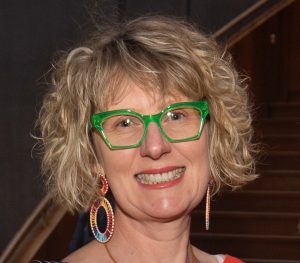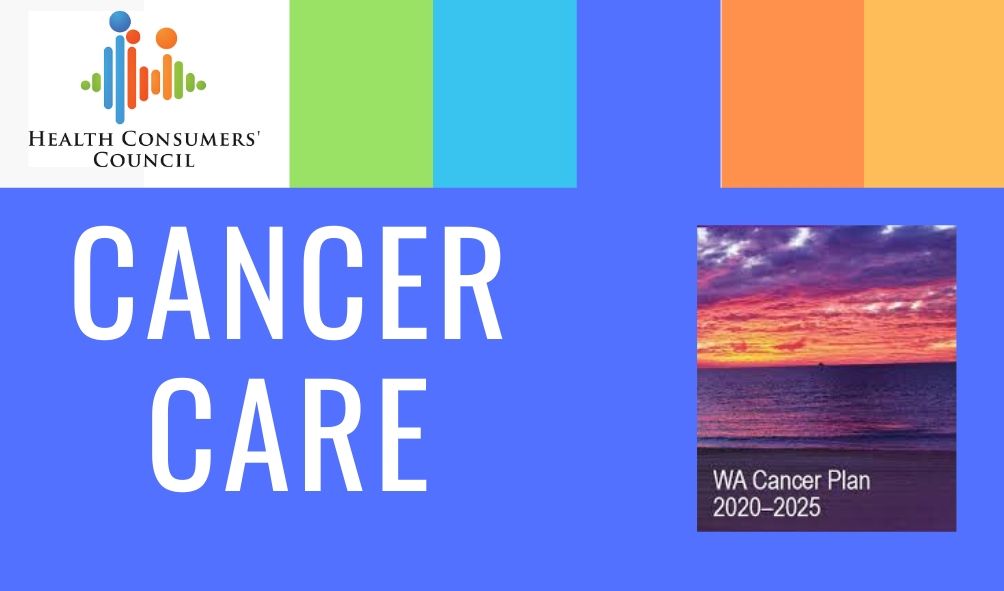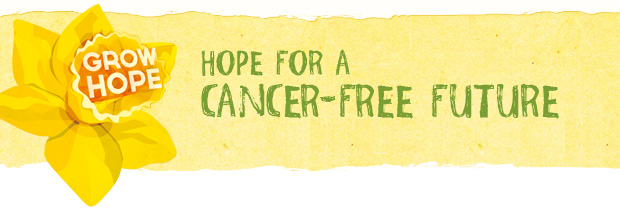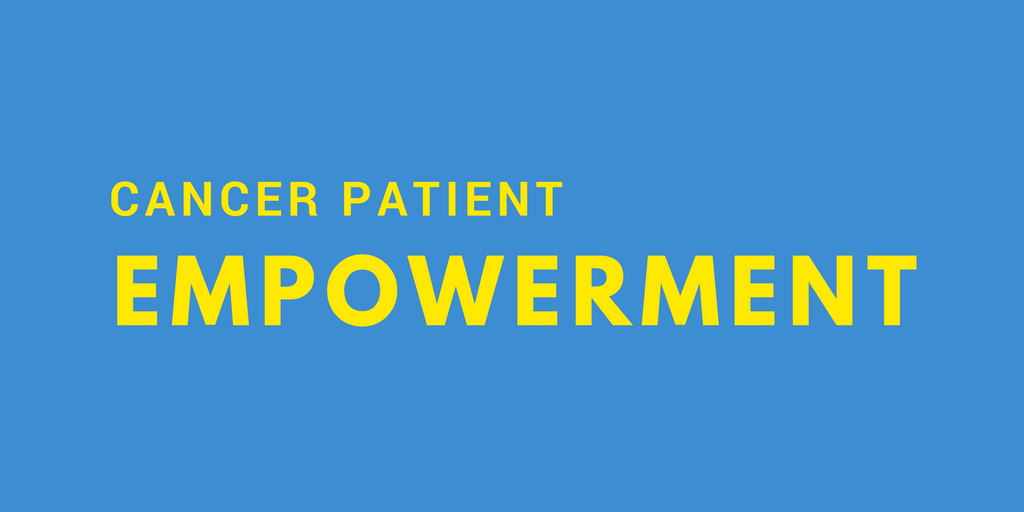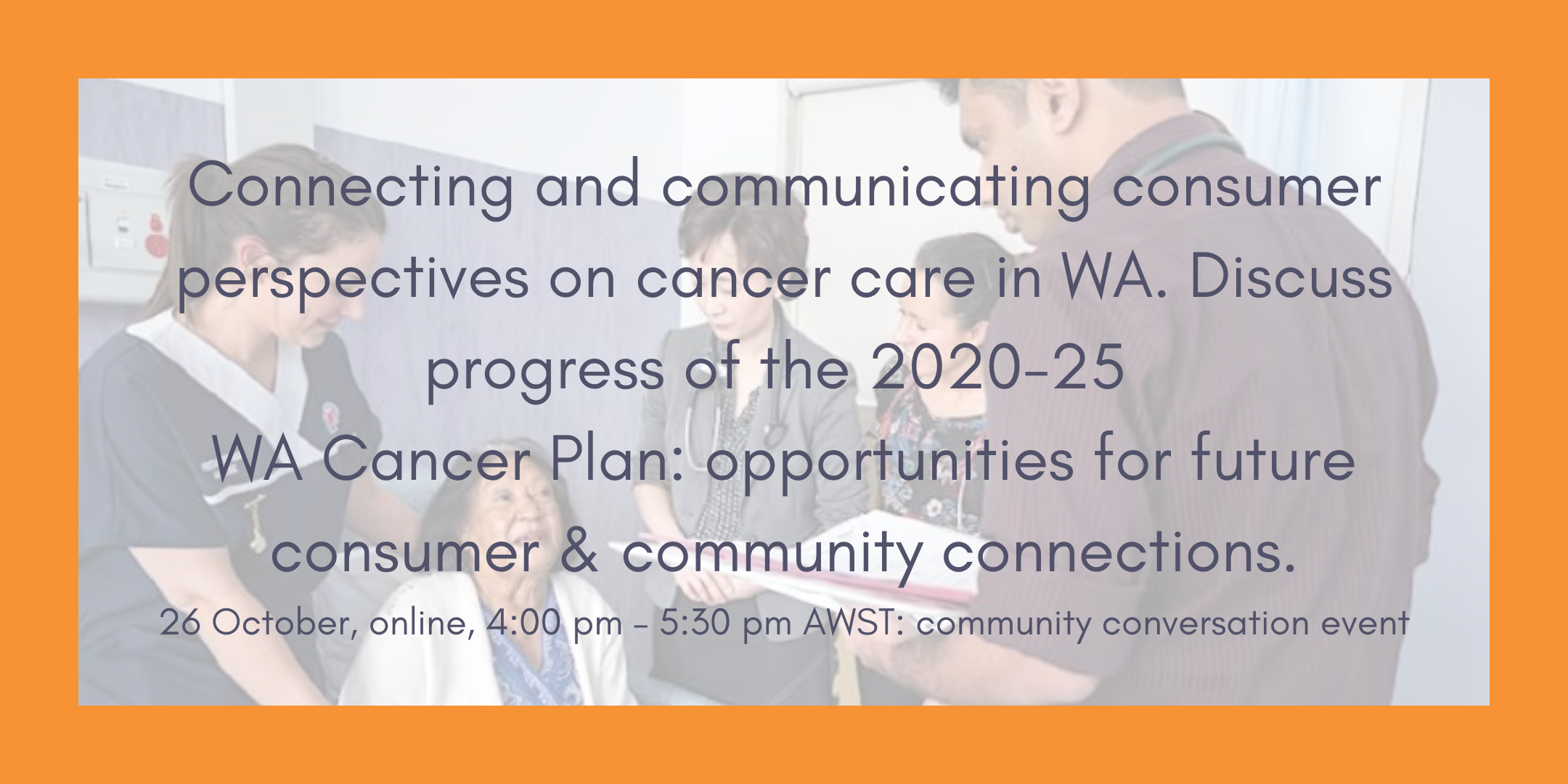
Has cancer affected your life – currently or in the past? A desire to connect with others who have similar lived experiences is the drive behind the upcoming community conversation welcoming consumers affected by cancer in WA. Health consumers’, carers, family, and community are invited to join “Connecting and communicating consumer perspectives on cancer care in WA“.
Be part of the conversation to discuss progress on the 2020-25 WA Cancer Plan. Discuss opportunities for future consumer and community connections.
Date and time
About this event
The WA Cancer Plan guides cancer care in WA: find out about progress on the 2020-25 plan and discuss opportunities for future consumer and community connections
Health Consumers’ Council (HCC) WA and the Consumer and Community Involvement Program (CCIP) are hosting this community conversation for people with experience of cancer – either for themselves, or for a loved one.
In this session, consumer representative Susannah Morris, the HCC WA consumer representative in cancer involved in work relating to the development and now implementation of the WA State Cancer Plan, will give an update on work so far as background for the conversation. Cancer care is delivered in the states and so state plans provide important context that guides care and affects consumer experiences and outcomes. Unlike some other jurisdictions, WA does not have a readily identifiable network of cancer consumers: we are fragmented between our cancer types and our treating locations and so this community conversation provides a space for us to come together.
This will be an opportunity for attendees to discuss their interest in people with experience of cancer in WA connecting with each other in order to influence the scope, design and delivery of health services and health research in relation to cancer and survivorship.
(NB This information session is being hosted independently by HCC and the CCIP to provide an opportunity for people with experience of cancer to connect with each other and learn about work relating to cancer care and services in WA. This is not a Department of Health event.)
This conversation will be held online, via Zoom – details will be sent out in the week before the session.
About the organisers
We are (Health Consumers’ Council WA) an independent charity that exists to support and promote consumer, carer and community perspectives in the WA health system.
The Consumer and Community Involvement Program (CCI Program) is an activity of the Western Australian Health Translation Network (WAHTN). The CCI Program (CCIP) supports consumers, community members and researchers to work in partnership to make decisions about health research priorities, policy and practice with the aim of improving health outcomes and ensuring community involvement becomes standard practice.
BACKGROUND: Cancer Care and the WA Cancer Plan, launched 2020
The WA Cancer Plan was released in February 2020 setting out the next five years of strategy in relation to cancer services. This work was undertaken by the WA Department of Health, and the Health Consumers’ Council supported the project through running a community survey and developing consumer videos reflecting consumer patient journey experiences. A summary of survey results is available here. The launch event featured a moving and articulate presentation from Advisory Group member Susannah Morris, who ensured the consumer voice was at the heart of the plan as much as possible.
(An abridged version of Susannah’s speech is in Health Matters (pages 10-11: March 2020 issue) on the Health Consumers’ Council (WA) website, titled “A new plan for cancer
care in WA“)
REGISTER FOR THE COMMUNITY CONVERSATION HERE:
https://bit.ly/WA-Cancer-Plan-Community-Conversation-Consumer-Perspectives




